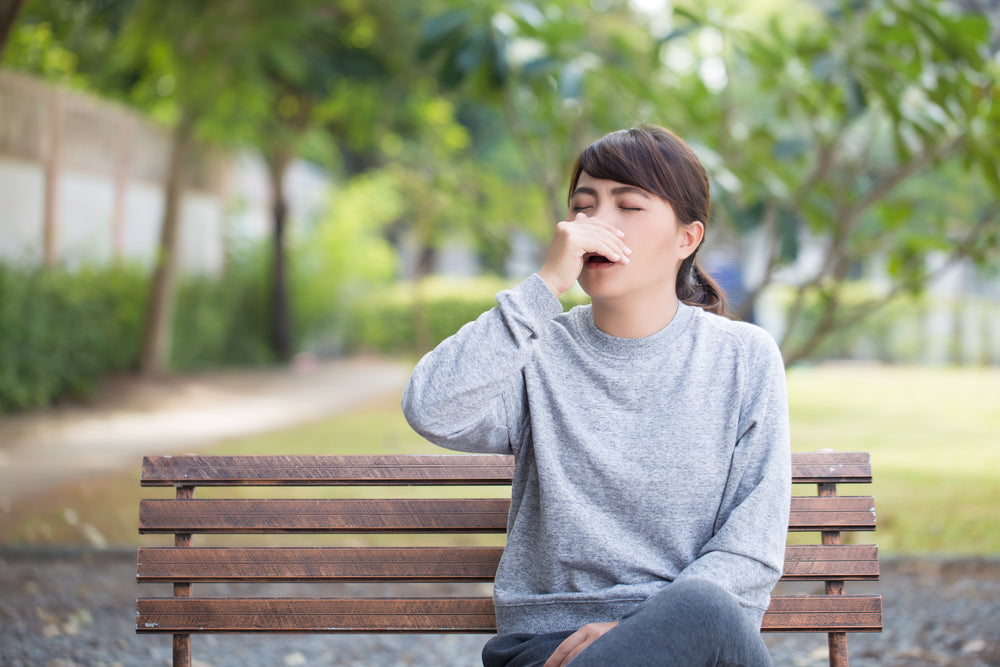No one, and I repeat, no one, enjoys having allergies. People will get shots, change their entire diet, stay indoors for weeks, just to avoid the annoying symptoms of allergies.
Sneezing, wheezing, runny nose, stuffy nose, watery eyes, itching, hives, congestion – that all sounds like nature’s way of torturing humans. Because allergies are triggered by different causes and the reaction varies depending on one’s body, there are a number of allergies ranging from slight, mild, or even life-threatening.
They are caused by the hypersensitivity of one’s immune system to something in the environment, causing annoyances and tiring experiences that interrupt our everyday lives. To be more specific, once the allergen enters the body, it triggers an antibody response leading to the eliciting of histamine from the cells. That’s how an allergy appear with its purpose of ruining your comfort.
Although we can’t control the weather, or avoid what our bodies don’t like, there are more than enough ways to help get rid of at least alleviate your allergies. Here are a few ways to get rid of allergies from the comfort of your own home:
Shut Out Breezes
Even just a mild breeze can trigger an allergy, as it may carry allergens with it. Keep your windows closed to prevent allergens from entering your home to avoid nasal problems. Instead, use your air conditioner and or air purifier.
Herbs and Supplements
A bunch of herbs and supplements including spirulina, eyebright, and goldenseal are proved to have the ability to give great relief. The plant extract butterbur is worth a try to cut down airway inflammation.
Pharmaceuticals pack more punch, but if you want to go the natural route, butterbur has the best track record among herbs used for pollen allergies (it’s also a known headache remedy), David Rakel, MD, founder, and director of the University of Wisconsin Integrative Medicine Program, told WebMD. Some studies suggest it can be as effective for nasal symptoms as an antihistamine, with no accompanying sleepiness. (Keep in mind that the safety of long-term use hasn’t been studied.)

Wash Away Allergens
Getting rid of the tiny particles on your clothes, shoes, hair, or skin after being exposed to allergens can make all the difference. You can take a shower, put on new clothes, and leave your shoes at the front door.
Use a Nasal Rinse
A nasal rinse can remove bacteria and thin mucus, and help decrease postnasal drip. You just need a teaspoon of salt, pinch of baking soda, and sterilized water.
Drink More Fluids
Fill up a water bottle or hydration pack to bring on your run, walk, or bike ride. “Fluids help thin mucus and hydrate the airways, so you won’t get as stuffed up,” says William S. Silvers, M.D., a clinical professor of allergy and immunology at the University of Colorado in Denver. Then use the rest to rinse off any pollen that’s on your face and hands.
Rethink Your Bedtime Routine
Hopping in the shower in the morning is one way to kick-start your day, but switching to a nighttime routine during the spring and summer can curb your symptoms. You’ll wash away the allergens that stick to your hair and face, so they won’t rub off on your pillow and irritate your eyes and nose. “At the very least, gently clean your eyelids with a little baby shampoo each evening,” suggests Clifford W. Bassett, M.D., an assistant clinical professor of medicine at Long Island College Hospital in Brooklyn, New York.
Put Pets In Their Place
Dogs and cats that frolic outdoors can collect pollen in their fur and transport it into your home. During hay fever season, ban your pet from your bedroom or at least keep him off the furniture, says Bassett. Bathe him as frequently as possible or wipe him down when he comes in from the yard with a premoistened cloth.
Consider Fish Oil Supplement
A study of people with allergic asthma (asthma caused by allergies) found those who took daily fish-oil supplements for a month had lower levels of leukotrienes, chemicals that contribute to the allergic reaction.
What other ways do you guys know of to help get rid of allergies?

 Log in
Log in
